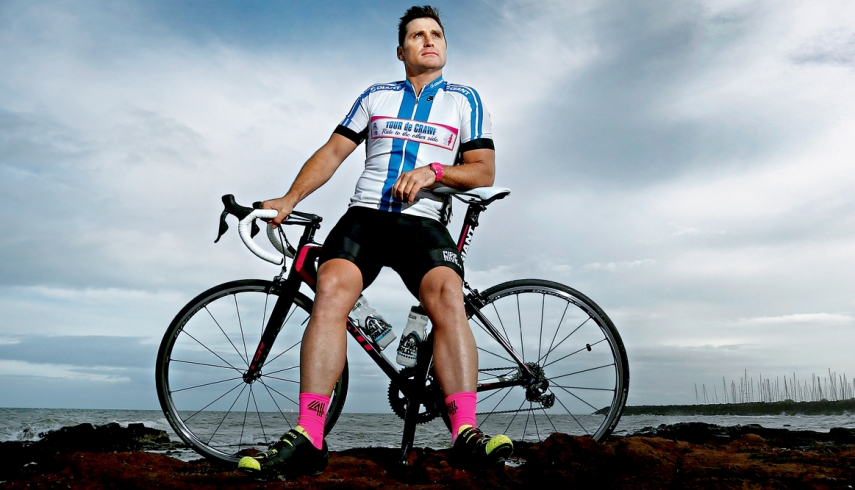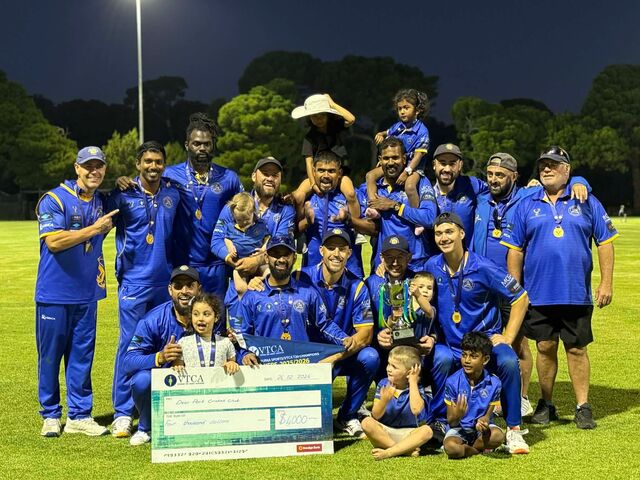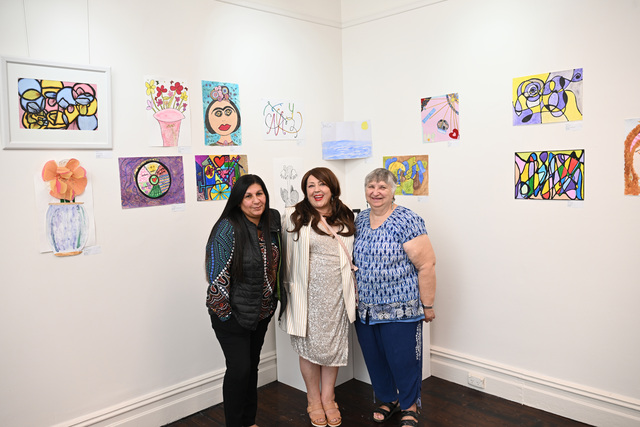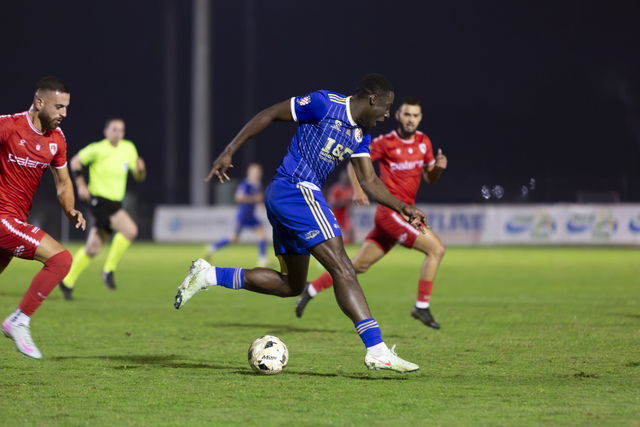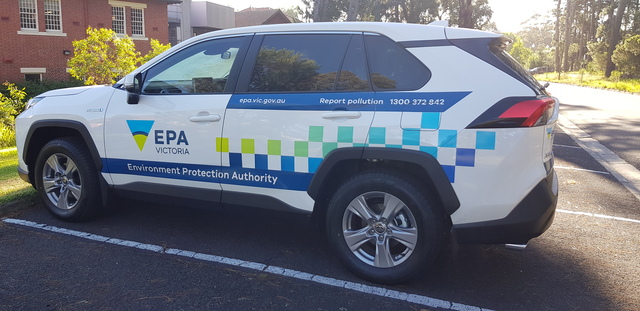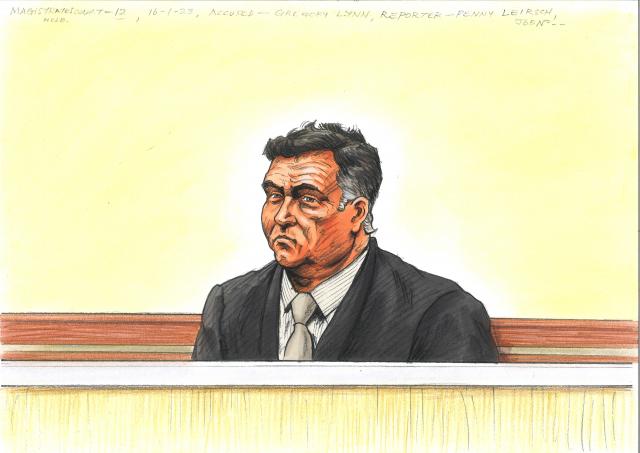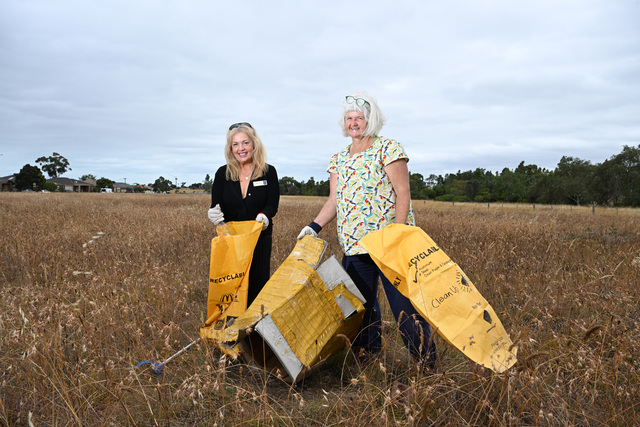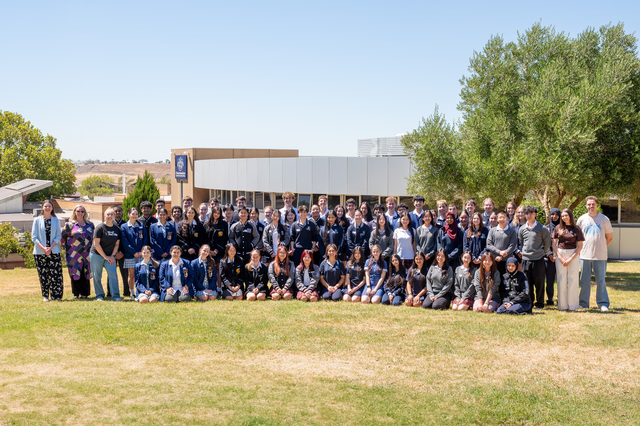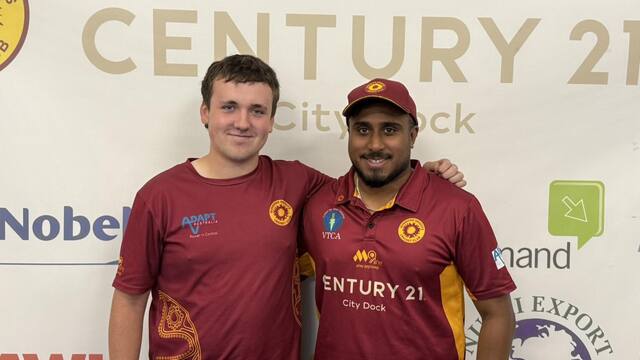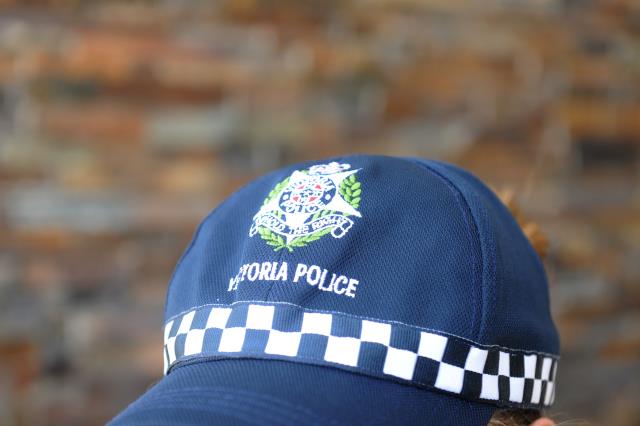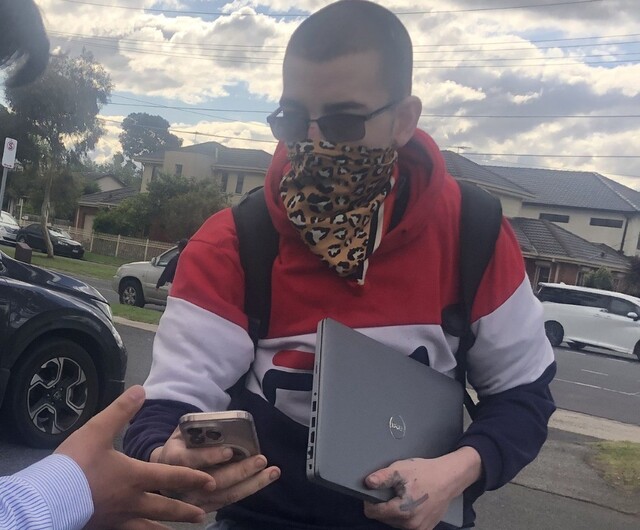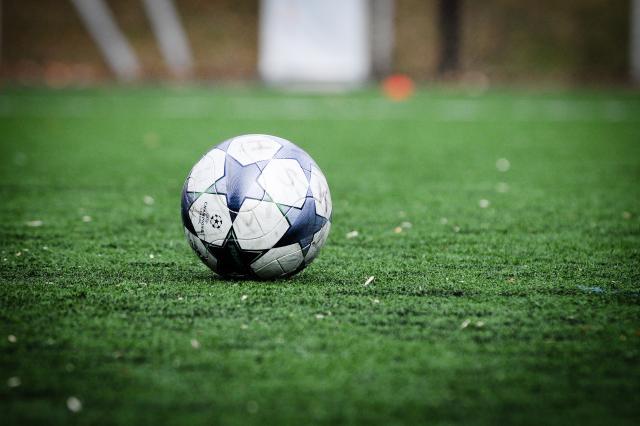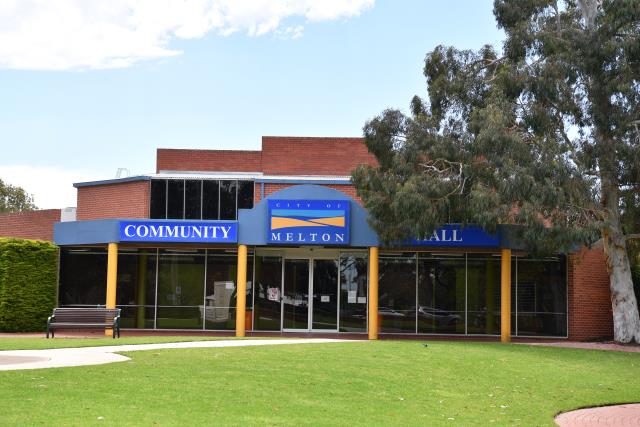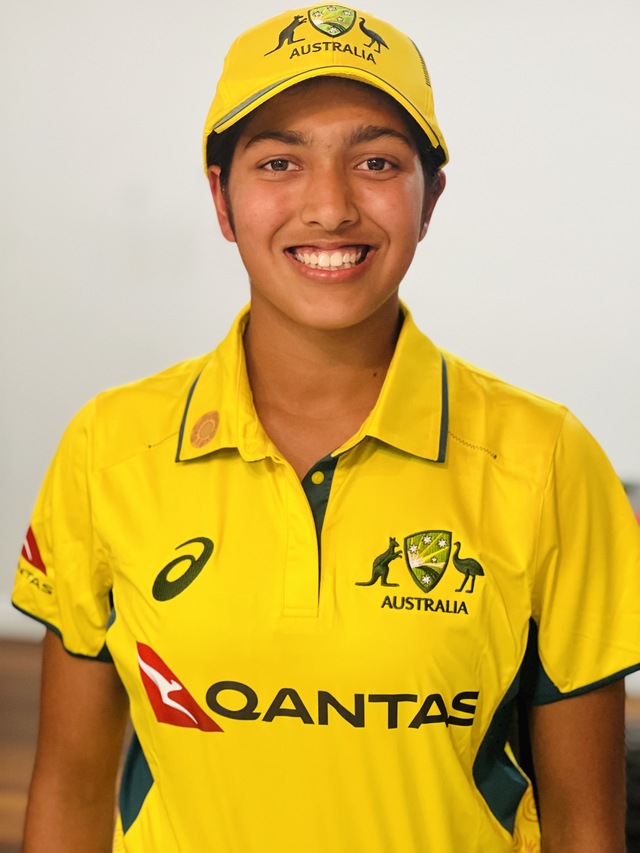He looks ridiculously toned, but if you’d ridden from Melbourne to Perth on a bicycle you’d look fit, too. I’ve caught up with Shane Crawford at a café in South Melbourne. The question is, though, which Shane Crawford? Because, as he admits, there are several. “There’s probably five,” he says with a smile.
We all know two of them. First there’s the Hawthorn footballer and Brownlow medallist who plays the clown on Nine’s The Footy Show, a man who will happily lie down and be covered in spiders.
The second Shane Crawford is a man who, through his promotional and physical efforts, has done exceptional work raising a lot of money – as well as gaining priceless exposure – for breast cancer.
I mention that his wife, Olivia, once said: “I tell friends that if he was that person you see on The Footy Show do you think I would be with him?”
“Well, obviously you can’t be the clown the whole time,” Crawford says in response. “I don’t think people would want to see me on The Footy Show if I was going to be a normal player talking about who’s playing in the back line and keeping it pretty straight.
“On Thursday night people want to sit back and relax and have a bit of footy and a bit of fun. They want to go back to their childhood roots. I was a fan of Graham Kennedy and Bert Newton and Don Lane.
“On Postcards (Channel Nine’s Victorian travel show) I’m a very straight type of person. I try to treat every show the way I feel it worked best. I’ve got no idea what I’m doing, I virtually go with what I feel and what I’ve seen on TV and what might work.”
And the other Shanes? “I do need a lot of Shane time,” he says. “Even when I was playing footy I used to have Shane day where Shane does whatever he wants on his day off, which is normally have a lot of quiet time and just float.
“A lot of times I’m in the public eye and you give a lot of yourself. Then there are times with the family trying to entertain and have fun with the kids.”
Even if his Footy Show stunts aren’t your thing, there is a lot to admire about Shane Crawford. Last year’s “Tour de Crawf” – a 3600-kilometre bicycle trek from Melbourne to Perth in 22 days – raised more than $1.3 million and the issue of breast cancer received very productive exposure.
“It was extremely hard work and long days,” Crawford says of the ride. “A couple of years ago when I did a run [his “That’s What I’m Walking About” trek from Adelaide to Melbourne in 2010] I thought it was all about how much money can we make. But after a couple of days on that run – after meeting a lot of women who were battling for their lives, we’d speak on the side of the road, they’d break down and tell you their story, and they had family members with them – it totally changed for me. It wasn’t just about money, it was about giving a bit of hope to people who needed support.
“For me, the ride was about trying to connect with as many communities as possible and show people who were doing it tough that we were right behind them. It was very special to be able to help in that small way.”
He was deeply moved by the stories he heard along the way. “There were plenty of times when you would have a moment with them and then you’d go off and you’d be riding down the road in tears with your mind ticking over. And that would inspire you to keep heading down the road.”
Crawford, 39, developed a strong interest in helping raise money and awareness for breast cancer after The Footy Show devoted time to the issue several years ago.
“I wanted to help the charity [Breast Cancer Network Australia]. I’d been a couple of years out of the game. I’d always watched the ultramarathon races with Cliffy Young and I wanted to do an ultramarathon.
“But it was deeper than that. I’ve had friends who’d lost their mothers to breast cancer. And some who’d had breast cancer and come out the other end. So I had some connection, but when I started with the run and what happened along the journey, that became a life-changing thing.
“When I look back at what I’ve achieved in my career, this is the biggest thing and something that I’m extremely proud of, to have that kind of influence. Some people go a different way, head down the wrong path; I’m glad that I can go down the right path.”
Crawford grew up in a small country town in New South Wales called Finley, one of three boys raised by their single mother, Dianne. His parents separated when Shane was four, and his life has been shaped by watching Dianne work hard to provide for her boys.
When Crawford won the Brownlow Medal in 1999, he delivered a moving and memorable tribute to his mother. “Finley was a great little community, 2000 people there, I have a lot of friends who still live there,” he says. “I was into all sports – cricket, golf, BMX racing, football. At school I was always looking forward to PE.
“At 14, I said to mum I wanted to go to boarding school. It was going to be tough for her because we didn’t have much money, just scraping by. So she went and got another job, which meant she had two jobs. She worked on a farm picking tomatoes and potatoes and then at an RSL Club in the afternoon and in some cases until midnight. She did this on a really consistent basis.
“Our grandparents lived at the back. We’d sometimes go there for dinner.
“It seemed to work OK. And it was such a little community so everyone kept an eye out for everyone.”
Crawford says he has always been appreciative of the opportunity to go to boarding school. “If she didn’t give me that opportunity to grow as a person and to really start fending for yourself who knows? I could still be in Finley.”
I asked whether his experience meant he admired single parents.
“Unbelievably. I’ve got four kids. To be able to bring up three very active boys and be strong enough to support us and be our mum as well and try and keep us on the right path … She’s someone I’ll never stop thanking because I really appreciated it.”
I ask Crawford about his father. “My dad would always float in and out a lot. It was always good times when he was around, but he wasn’t around a great deal. We always got along really well, I was always so excited to see him but he just wasn’t around.”
Crawford’s father “did a lot of different jobs; he was a bit of a floater”.
His father was gravely ill with cancer when Crawford was in year 12. “There was pressure from some of the Brothers and teachers at school to get me to go and see my dad as he was dying.”
Crawford had just days to visit his father in Echuca. “The last time I saw him was when he came to the school to watch a cricket match and we had a really nice afternoon. That last memory for me was special, it was really, really nice.
“I didn’t want my last memory of my dad as someone who couldn’t communicate, lying in a bed. That image would be with me for the rest of my life. Whereas the image I have of my dad for the rest of my life was saying goodbye after a really nice time together.”
Crawford has a photo of his father from that day. “That’s very precious to me. I don’t have a bad word to say about my dad. I know he wasn’t around and I’m sure my mum would say a few bad things about him, but all my memories from when my father was around were good fun.”
Did this experience lead Crawford to be a hands-on father? “I think I was always going to be hands-on, but if anything it keeps reminding you that you’ve got to be involved and give them every opportunity to have a mum and a dad in their lives.”
I ask about the impact on boys of growing up without dads. “I always wanted that fatherly influence but definitely my mum covered for that. When I look back now – and with my kids, it’s always in the back of mind that I want to be involved in their lives, I want to be around and help them go on and achieve whatever they want to achieve in life.
“If anything’s been passed on to me, it’s that if you can have two parents involved in your life, everything seems fairly normal, and that’s what I want to be the case. And it’s very much a driving force for me – to keep that relationship really strong and happy and fun.”
Crawford and his wife, Olivia Anderson, have four young children, Charlie, 7, Ben, 5, and twins Jack and Harry, 2. “It’s hard work, but it’s so much fun,” he says. “The connection you have with your child is like no other. I just feel my life is complete. I’ve been lucky enough to achieve a lot of things sporting-wise, and they were always my dreams to go for and try to achieve, and now I’ve got four beautiful boys who still like their dad.”
Footy once meant everything to him but he says parenthood has outstripped that. Does having kids grow you up? “It certainly does. As soon as you hold a child for the first time, then driving him home from the hospital, put him in the car seat and you think, ‘Ohhhh’, and you drive home carefully, it certainly changes the way that you look at things.
“In football sometimes you have to be selfish in the way you prepare if you want to get the best out of yourself. Having kids was a nice way to help with that transition to a life without footy.”
For Crawford it’s busy times ahead. This year, he will appear on The Footy Show (including the Sunday version), Postcards and Getaway, for which he has recently travelled to the Galapagos Islands, Antarctica and the Amazon.
He is also launching an online platform called crawf.com.au, a fitness and health site in which he will trial different activities and interview sporting personalities. His writing career launches this month, too, with the release of the first of a series called Kick it to Nick, co-written with Adrian Beck, about footy adventures.
He credits Olivia for being “an extremely supportive partner”. “There are always times when you’ll look at each other and go, ‘What’s going on?’, especially with me being an extra kid in her life, so really there’s five kids. We get along well and we have a good understanding of what makes each other tick.”
It’s been good to peel back some layers on Shane Crawford. As someone once said of Clive James: “He’s a great bunch of guys.”
» The first two books in the Kick It To Nick series will be released by Penguin on March 26 ($9.99)
WATCH » The Footy Show airs at 8.30pm Thursdays, Getaway is on at 5.30pm Saturdays and Postcards is on at 5.30pm Sundays – all on Channel Nine.

